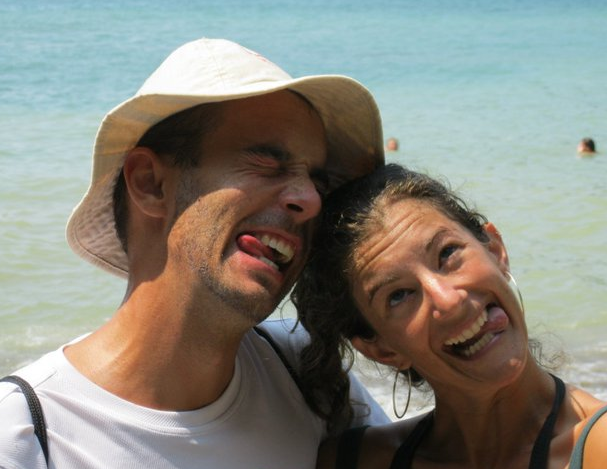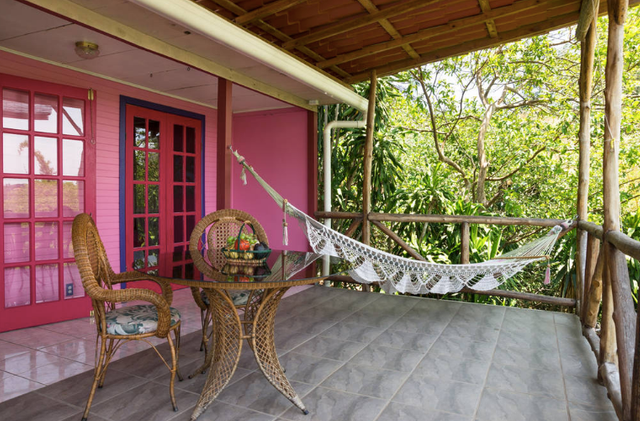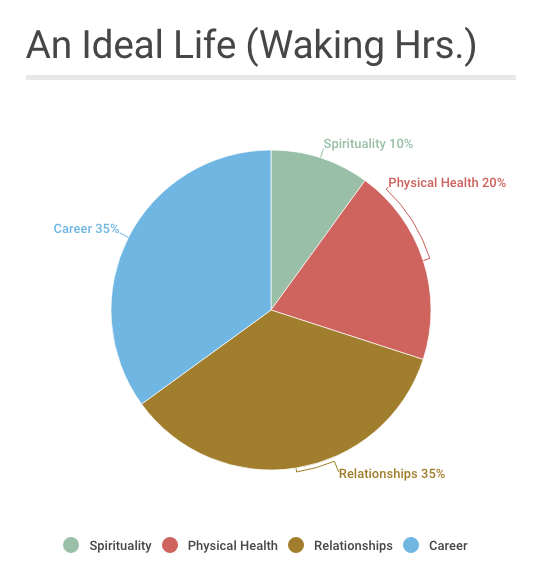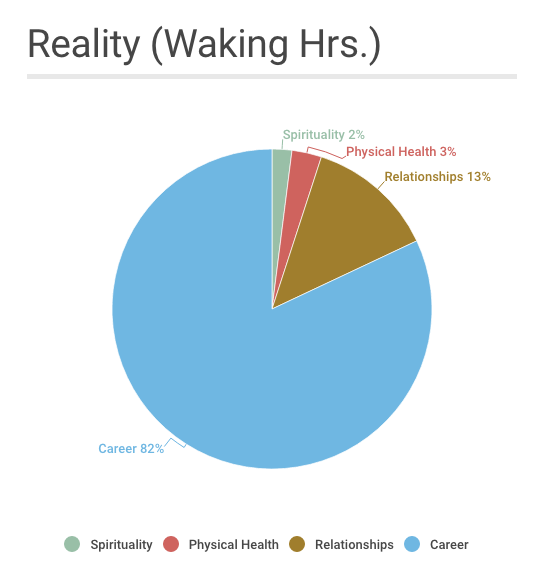
All to often, we don't question the carefully defined path that we're "supposed" to take in life. I was no different. For most of my adult life, I wanted to be a teacher--and that's exactly what I did.
But in 2009, I read Timothy Ferriss's The 4-Hour Workweek. In it, he introduces the concept of the "mini-retirement". One popular website summarized the it saying,
"Instead of deferring retirement to the end of our careers, we would be happier, more fulfilled, and more productive if we instead took 'mini-retirements' throughout our lives."
What a liberating idea: instead of slaving away for 40 years, only to get time off when our bodies were starting to break down, we could begin our retirement right now!
So, we quit our jobs, bought tickets to Costa Rica, and rented the first house we found on Craigslist (shown below).

In a previous post, I covered why we decided to make the move. But here, I want to tackle what we got out of it.
Given what I've shared so far, you might think it must've been heaven, right?
WRONG!
Here's why:
For many, being in a tropical paradise with no job responsibilities would be a dream come true. But I'm the very definition of an extrovert. I was used to being with my students for eight hours a day, meeting friends for a drink afterwards, and meeting Ali (my wife) when she got home.
Now, we were literally thousands of miles away from anyone we knew, in a remote, rural, mountain village.
I had no purpose...and that was not a feeling I was prepared to deal with.
So why would I say that the mini-retirement "saved us"?
Because growth is important, but the process of growth usually sucks.
Having to confront my newfound free time, and the uncomfortable feelings that it brought on, was the catalyst for two key internal changes. And I think the same would be true for many who are reading this.
1) I was forced to systematically redefine who I was
Taking a mini-retirement can be unsettling.
Our default in America is to define ourselves by our job. I followed that to a tee. When I was in school, I defined myself by (1) my academic accomplishments, and (2) the fact that I was a football player. That continued right into adulthood. While identifying myself primarily as a "teacher" certainly isn't as bad as some other professions, it was unhealthy nonetheless.
I became very one-dimensional. Other parts of my life atrophied. That was never more obvious than when we were on school breaks, and I went crazy trying to figure out what to do with myself.
One way I attempted to fix this was by asking: What do I want the most important areas of my life to be, and how important is each of these areas to me?
My answer looked like this:

But when I looked at how I was actually spending my time before our mini-retirement, it broke down like this:

Clearly, there was a disconnect. The mini-retirement, in effect, had carved 82% of "ME" out of me. I had to go about reinventing myself--and discovering what really mattered to me--in order to balance things out.
Over time, I reached those answers. What they were isn't important for this post. What matters is showing what the mini-retirement shined a light on, and how I went about solving the problems I encountered. The actual process took the whole six months (and it continues to this day), but it was worth it.
2. After opening our eyes, I'm not sure we could ever go back
I have no illusions about how lucky we are. If not for the job I have--which allows me to work remotely, and at whatever pace I'm willing to work at--our lifestyle would be very difficult to continue.
But at the same time, I think there are a lot of comforts my wife and I would be willing to give up to maintain the freedom we enjoy now. More than anything, what I'm talking about is eschewing the almost-automatic consumerism we're encouraged to participate in. This behavior leads to indebtedness--both on the financial and psychic levels.
But it's also important to tell you about what's replaced this. Let's consider a scenario that almost any couple encounters at some point: one of you has been offered a new job. How do you go about jointly making a decision about what's best for the family?
While I'm sure most would ask "How would this affect the family?" (and other similar queries), I know that before my mini-retirement (and, I suspect, for many others right now), two would have dominated:
- Is this a good move for my/her career?
- How much more does it pay?
After our mini-retirement, we have a much different process. Based on a lot of research we've read, and our own life experiences, these are the four factors we focus on:
- Connections: How could this change affect the types of connections we enjoy with each other, and the community around us?
- Purpose/Meaning: Is this something that will add to a greater sense of purpose? If money wasn't an issue, would we still be doing it?
- Opportunities for growth: Will you have a chance to truly grow in your position and explore your potential?
- Autonomy: In what ways will your autonomy grow as a result of this decision (this is where financial considerations can be covered, too)? In what ways might your autonomy be reduced?
So far, those four metrics have led us in the right direction. If we continue to follow them, I highly doubt we could ever go back to a lifestyle that's overwhelmingly dictated by the job we hold.
At the end of the day, that's the true value of our mini-retirement experience.
@antifragile
Very good move man! I really praise people who are able to do this. Keep it up. The first step is the hardest.
Downvoting a post can decrease pending rewards and make it less visible. Common reasons:
Submit
@kyriacos - Thanks. We've been heading back to Costa Rica for six years now. Steps 2-6 were much easier!
Downvoting a post can decrease pending rewards and make it less visible. Common reasons:
Submit
Unfortunately, our society (and our parents/relatives!) expects us to follow an upward trajectory: college, first job, better job, marriage, house, kids, better job with better title, annual vacation, more work, vacation house, put kids through college, more work, retire at 65...and yet it really doesn't make much sense does it? It's far better to alternate five years of work with say a year's sabbatical in a foreign country, and repeat as needed. And we could all do this (take regular sabbaticals) if we wanted to, if we practiced a more minimalist lifestyle and eschewed expensive toys. Thank you for this post @antifragile
Downvoting a post can decrease pending rewards and make it less visible. Common reasons:
Submit
Respectfully, the meaning of sabbatical is the seventh year. Just as the Sabbath is the seventh day. Taking a sabbatical has been a common practice among university professors for refreshing and renewing their field of study.
Downvoting a post can decrease pending rewards and make it less visible. Common reasons:
Submit
Yes, that's a good point. My cousin is a professor and takes sabbaticals every 4 or 5 years but funny enough she works harder during her sabbaticals as she spends them undertaking research in foreign universities and preparing articles for publication in prestigious journals.
Downvoting a post can decrease pending rewards and make it less visible. Common reasons:
Submit
Mini-retirement? Why not? Good idea, thanks for sharing. The initial picture of the post is perfect and really reflects our @busy@ life!)))
Downvoting a post can decrease pending rewards and make it less visible. Common reasons:
Submit